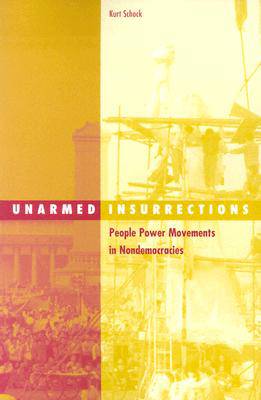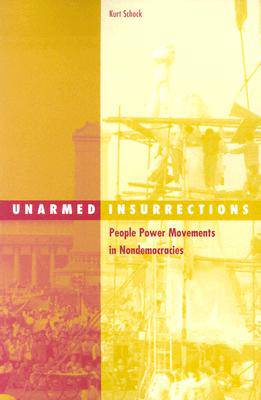
En raison d'une grêve chez bpost, votre commande pourrait être retardée. Vous avez besoin d’un livre rapidement ? Nos magasins vous accueillent à bras ouverts !
- Retrait gratuit dans votre magasin Club
- 7.000.000 titres dans notre catalogue
- Payer en toute sécurité
- Toujours un magasin près de chez vous
En raison de la grêve chez bpost, votre commande pourrait être retardée. Vous avez besoin d’un livre rapidement ? Nos magasins vous accueillent à bras ouverts !
- Retrait gratuit dans votre magasin Club
- 7.000.0000 titres dans notre catalogue
- Payer en toute sécurité
- Toujours un magasin près de chez vous
36,45 €
+ 72 points
Description
Pinpoints reasons for successes and failures of nonviolent protest movements
In the last two decades of the twentieth century, a wave of "people power" movements erupted throughout the nondemocratic world. In South Africa, the Philippines, Nepal, Thailand, Burma (Myanmar), China, and elsewhere, mass protest demonstrations, strikes, boycotts, civil disobedience, and other nonviolent actions were brought to bear on a rigid political status quo.
Kurt Schock compares the successes of the anti-apartheid movement in South Africa, the people power movement in the Philippines, the pro-democracy movement in Nepal, and the antimilitary movement in Thailand with the failures of the pro-democracy movement in China and the anti-regime challenge in Burma. Schock develops a synthetic framework that allows him to identify which characteristics increase the resilience of a challenge to state repression, and which aspects of a state's relations can be exploited by such a challenge. By looking at how these methods of protest promoted regime change in some countries but not in others, this book provides rare insight into the often overlooked and little understood power of nonviolent action.Spécifications
Parties prenantes
- Auteur(s) :
- Editeur:
Contenu
- Nombre de pages :
- 256
- Langue:
- Anglais
- Collection :
- Tome:
- n° 22
Caractéristiques
- EAN:
- 9780816641932
- Date de parution :
- 01-12-04
- Format:
- Livre broché
- Format numérique:
- Trade paperback (VS)
- Dimensions :
- 158 mm x 229 mm
- Poids :
- 349 g

Les avis
Nous publions uniquement les avis qui respectent les conditions requises. Consultez nos conditions pour les avis.






